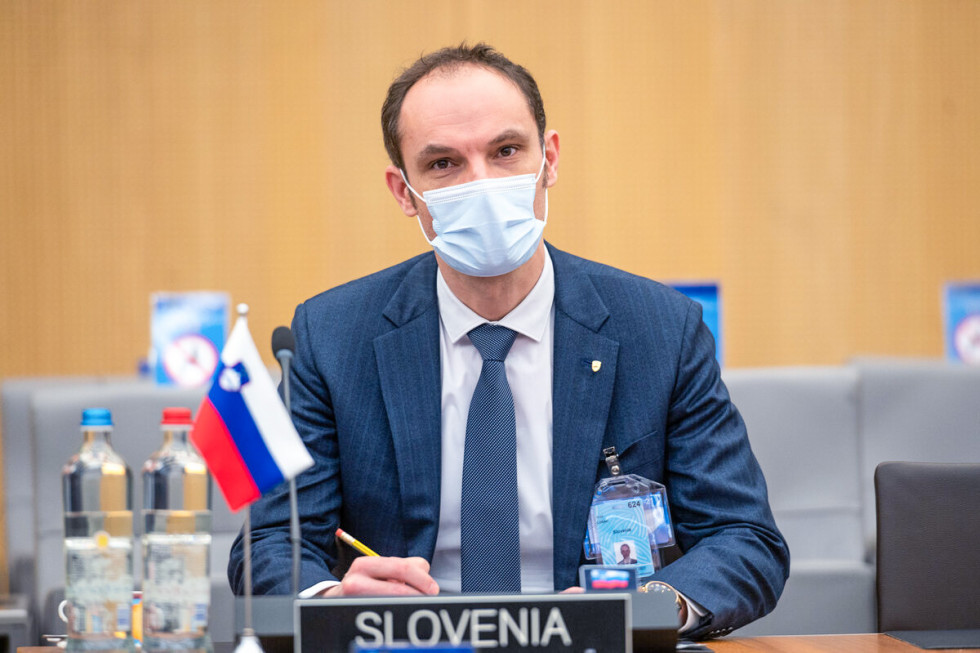Minister Logar at a two-day meeting of the North Atlantic Council
- Ministry of Foreign Affairs
- Permanent Representation to NATO Brussels

Minister Anže Logar | Author Ministrstvo za zunanje zadeve
The foreign ministers discussed the current situation in Afghanistan and NATO’s future role. Calling on the Afghan government and the Taliban to adopt a constructive approach to peace negotiations and the search for a lasting, comprehensive and peaceful solution is crucial. Minister Logar pointed out that the Resolute Support Mission has reached a strategic turning point and went on to express support for securing the achievements of the past two decades in the rule of law and human rights, particularly the rights of women and children.
As to the challenges in the South, Minister Logar emphasised that it is imperative to monitor and respond to the challenges and threats that come from the region in a timely manner. He stressed that we can only be effective if we cooperate with partners and coordinate our activities with the wider international community, especially the European Union and the United Nations.
In response to the NATO 2030 process report, which was presented to ministers at a meeting in early December 2020, and further consultations with allies, partners and civil society, the NATO Secretary General has prepared draft recommendations to strengthen the Alliance’s political dimension and successfully adapt to the strategic environment in the next decade.
In the context of strengthening NATO as a political alliance, Minister Logar highlighted the importance of the consensus principle, mutual trust and timely mutual consultations. He also underscored the need for partnerships and, above all, for the strategic partnership with the European Union, especially when it comes to emerging and breakthrough technologies.
The ministers adopted a statement that, among other things, underlines the vital role of the transatlantic partnership. They also endorsed the document on NATO’s climate change and security agenda and the request to update the Action Plan on enhancing the Alliance’s role in the international community’s efforts to counter terrorism.
In the debate on the relations with Russia, Minister Logar agreed with the Allies that efforts should be continued as part of the dual-track approach, i.e. by strengthening NATO’s deterrence and defensive posture on the one hand and the readiness for dialogue on the other. The importance of building the resilience of the allies and partner countries to hybrid actions and disinformation activities was also highlighted. In the same context, the Minister drew attention to the situation in the Western Balkans and the growing influence of third parties in the region, expressing his support for NATO’s efforts on arms control.
To a certain extent, the meeting of foreign ministers served as a preparation for this year’s NATO Summit, which will offer an opportunity for the leaders to adopt the guidelines on strengthening NATO’s political dimension and updating the strategic concept based on the NATO 2030 process.

